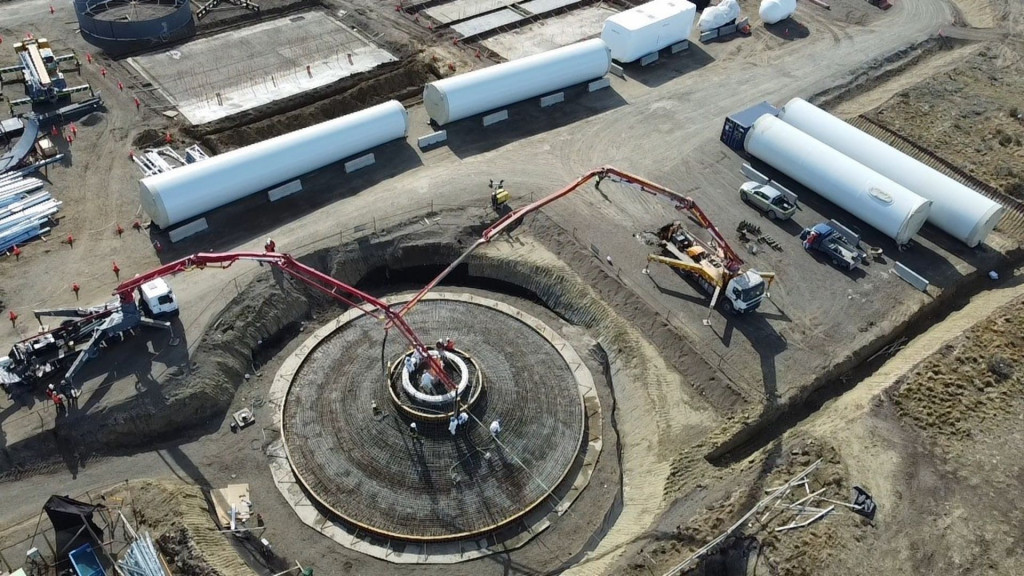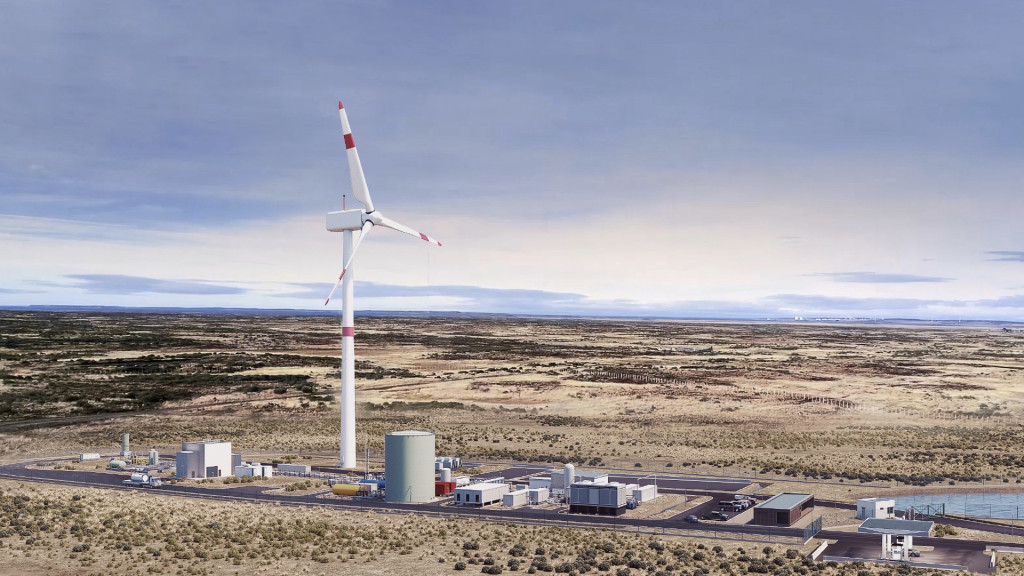As it continues to launch new electric cars, Porsche is continuing to invest in synthetic fuels for internal-combustion vehicles.
The automaker on Wednesday announced a $75 million investment in HIF Global LLC, a holding company for projects to develop synthetic fuel production facilities. The investment gives Porsche a "long-term stake" in HIF, the automaker said in a press release.
One of the projects Chile-based HIF is involved in is the Porsche-backed Haru Oni pilot plant In Punta Arenas, Chile. The plant is scheduled to start producing synthetic fuel in mid-2022, according to Porsche.

Construction of Haru Oni synthetic fuel pilot plant
The additional capital Porsche is investing will be used to develop additional facilities in Chile, the United States, and Australia, the automaker said. Initially, Porsche plans to use the synthetic fuel produced at these facilities in race cars. In the future, Porsche said it may use the fuel in road cars at the factory, and in at its Porsche Experience Centers, which offer track drives to customers.
Synthetic fuel will substantially lower carbon emissions, Porsche claims. Haru Oni's process involves making fuel from hydrogen and carbon dioxide (CO2) using wind energy, which Porsche claims will "enable nearly-CO2-neutral operation of combustion engines."
Porsche previously claimed that with an estimated 85% reduction in CO2 emissions for synthetic fuels made with renewable energy, from a "well to wheels" perspective it will add up to lower emissions than from an EV, once manufacturing is factored in.

Rendering of Porsche-backed Haru Oni synthetic fuel pilot plant.
The promise of an extremely low-emission fuel than can keep internal-combustion cars on the road has attracted interest from other automakers as well. BMW has invested in synthetic-fuel startup Prometheus Fuels, while McLaren COO Jens Ludmann said in 2020 that the automaker would build a synthetic-fueled test car.
But policy papers from some environmental organizations do not agree. Transport & Environment has gone so far as to call these fuels "a mirage." Based on the available data, unless you factor in necessary pieces like carbon capture, it's hard to make a cohesive argument for how such fuels could keep the internal combustion engine alive.
But for now, with full electrification of some modes like most passenger air travel still decades away, synthetic fuels could still see financial success across that industry—and for fueling vintage cars.












